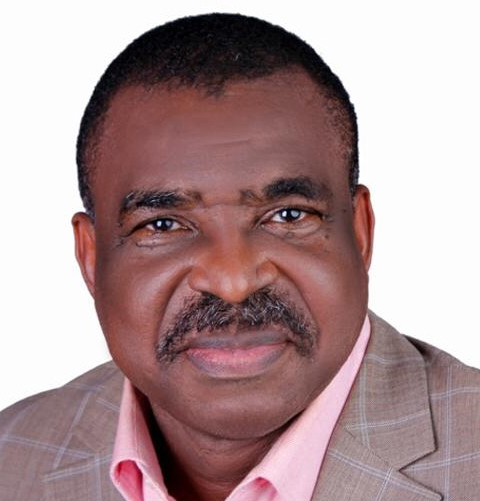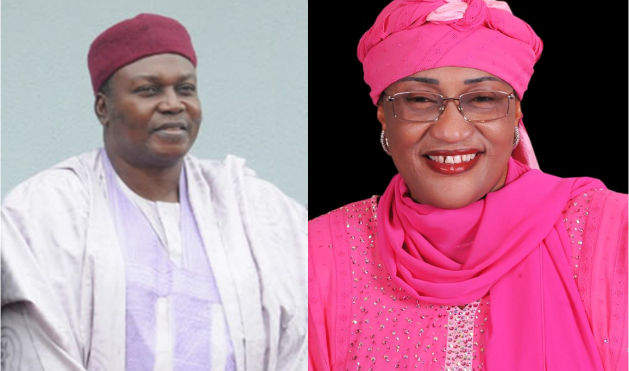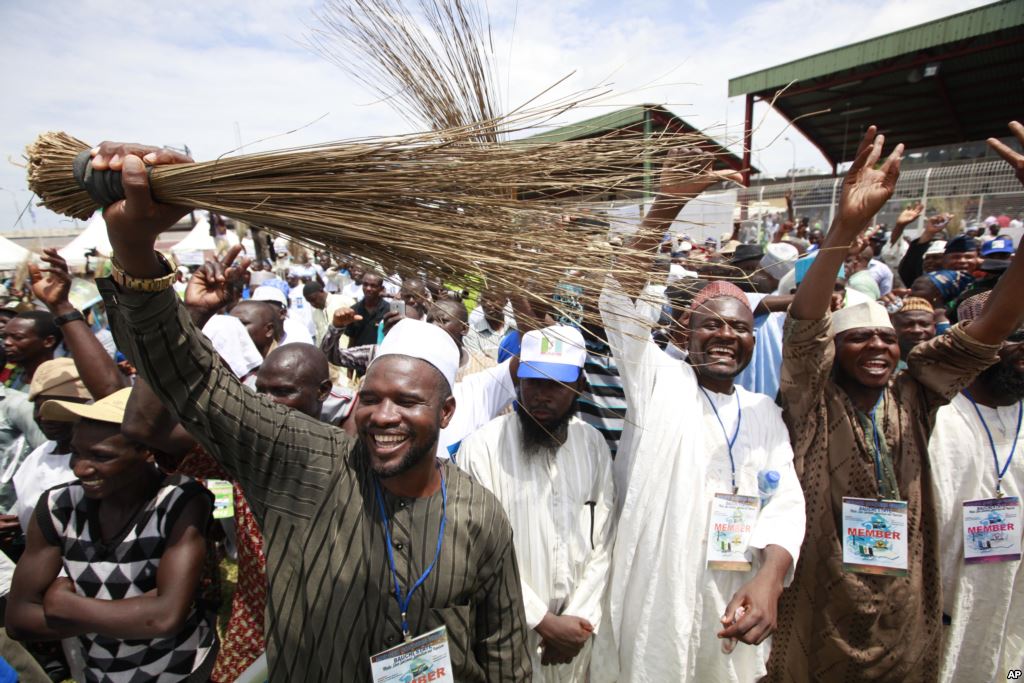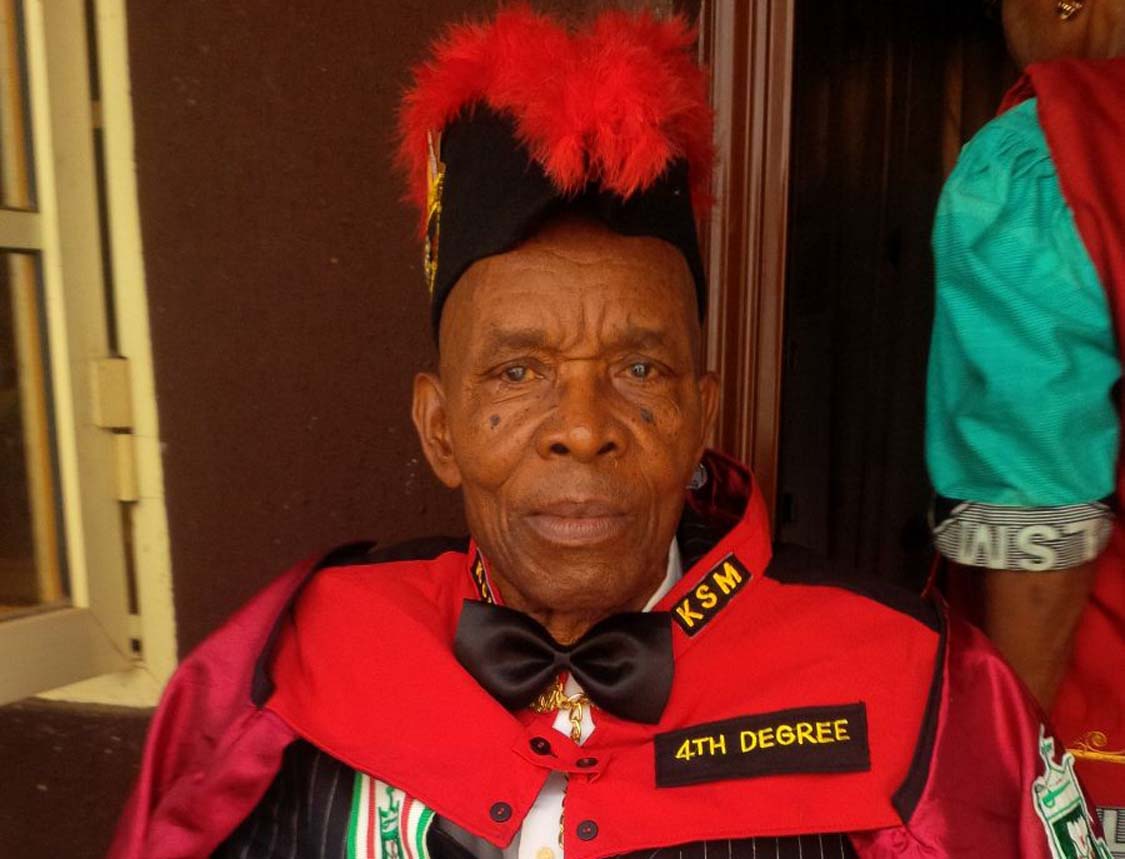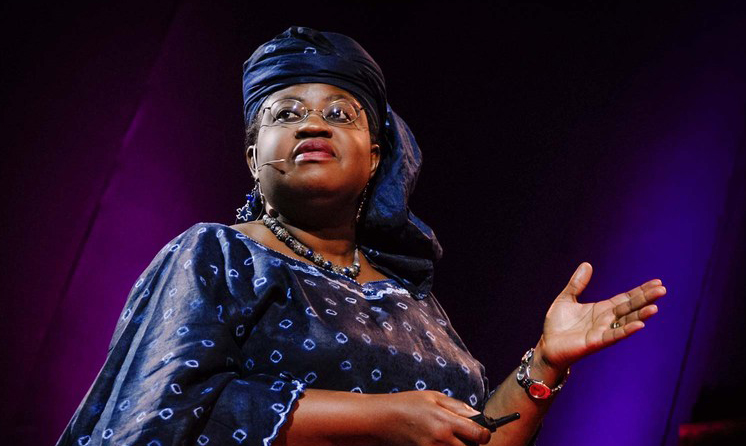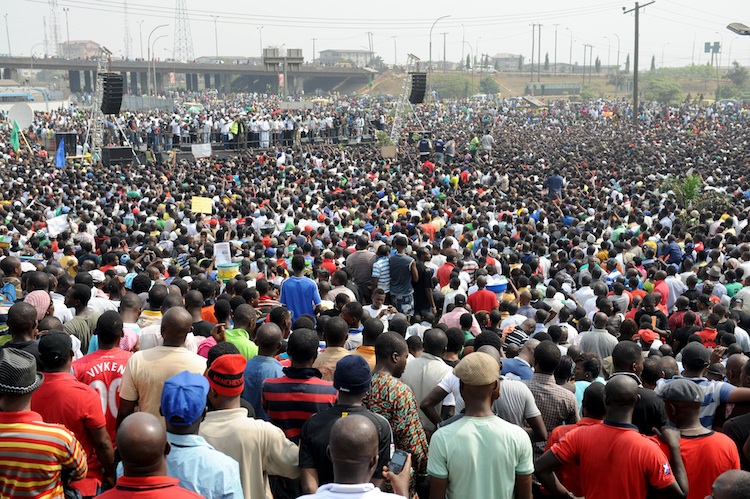For starters, I would like to attribute the title of this article in part to Kofi Annan, former United Nations, UN Secretary General whose recent speech to the Commonwealth was titled “Are Elections Giving Democracy Bad Name?”
Given the unprecedentedly spate of violence in the 2015 general election that ushered change of rulership to opposition political party in Nigeria and the brigandage that eclipsed recent elections in Kogi and Bayelsa states leading to inconclusive governorship elections, all arms of government in Nigeria need to rethink the role of violence viz-a-viz integrity of elections in our fragile democracy.
According to Annan, one of the most striking developments of the last quarter of a century is the spread of elections. In his view, “Commonwealth was both a witness and an agent of this remarkable phenomenon. When it adopted the Harare Declaration in 1991, nine of its members were under military or one party rule. By 1999, all had become multiparty democracies”.
Annan’s analogy reflects exactly the situation in Nigeria because in 1991, our country was under the yoke of military jackboot but by 1999, multi party democracy had returned and it has consistently remained back-to-back for unbroken sixteen years.
Advertisement
Going further, the former UN scribe lamented thus: “Unfortunately, after the initial period of genuine change, rulers learned that elections did not necessarily have to mean democracy: elections could be gamed to remain in power, sometimes indefinitely.”
Sadly, the scenario described above by Annan generally reflects the state of affairs in Nigerian political space which is now characterised by deadly battles to supplant popular votes with imposition of candidates using the force of violence by elements in and out of govt that are undemocratic.
Most striking is Annan’s conclusion that when elections are rigged, it does three things to democracy: firstly it confuses legality with illegitimacy, secondly it confuses repression with stability and thirdly, it confuses an electoral mandate with a blank cheque.
Advertisement
I totally agree with him and it breaks my heart that all the three vices outlined are the hallmark of Nigerian politics of today which may partly be responsible for the current rash of election annulments and mutual suspicion between the ruling and opposition parties which are accusing each other of sleight of hands and illicit dealings with the judiciary to undo each other.
As a democracy enthusiast, I’m persuaded by the illustrious diplomat and Africa’s foremost democracy evangelist’s sentiments in that regard, hence I decided to graft some of his thoughts into this article.
That also explains why the original title of this article “The Absurdities of Nigerian Electoral Process And Judicial Interventions” which I had crafted a couple of weeks ago was dumped for not being fitting enough as soon as I read and and digested Annan’s inspiring piece.
I was not only excited by the presentation due to the fact that it is focused on similar issues of violence and other shady activities that characterize elections in Nigeria but I’m particularly peeved by untoward election violation activities that lead to the shifting of the struggle for political power from the electorates to the arena of law courts and in the process denying Nigerians the opportunity to choose their leaders, all of which make govt loose legitimacy.
Advertisement
Talking about loss of legitimacy of govt, most sociopolitical analysts, so far , are yet to observe that our warped election processes, which have worsened in the past 16 years of return to democracy, may be partly accountable for the rise of organized insurgency by Boko Haram in the north east, fighting for an Islamic state ,which started as a northern protest under the watch of ex president Olusegun Obasanjo (driven by Islamic extremists who believe Muslims can’t be governed by a Christian) spanning the reign of late president Umaru Yar’Adua and peaked under immediate past president Goodluck Jonathan. With power shifting to the north,a south east separatist group, MASSOB is now agitating for the state of Biafra in the south east,under president Muhammadu Buhari’s watch due to their perception, wrongly or otherwise, that amongst other reasons,the mandate of Buhari might have been improperly obtained via flawed elections (loophole stemming from a combination of electronic and manual voting and seeming marginalisation ) hence the revolt.
The president did not help issues when he allegedly insisted in an interview in the USA, that he would not treat the South East people, who contributed far less votes to his victory as well as he would treat people from the Northern region who voted for him massively. Although president Buhari has argued that his comment is being quoted out of context and he has demonstrated Igbo inclusion by appointing at least four Igbo ministers into his cabinet the initial wrong impression seems to be indelible.
Other ethnic militia groups like MEND (Movement for Emancipation of Niger Delta) in the south-south and Odua Peoples Congress (OPC) in the south-west also have potent insurgency capacity but for now only Boko Haram has been fatalistic and to some extent the Biafra movement tend to be exhibiting tendencies of violence . Without doubt all the above mentioned tensions are fall outs or symptoms of dissatisfaction by the electorate whose votes don’t count when elections are gamed and annulled consequently as Annan observed in his seminal thesis.
The justification for adopting the title needs no further elucidation as the latest Appeal Court annulment of the governorship election in Akwa Ibom state, eloquently testifies to the hollowness of elections in Nigeria.
Advertisement
Barely two weeks earlier, the Appeal Court had upheld the judgement sacking governor, Nyesom Wike, a decision earlier handed down by the Rivers State election tribunal.
In some states (especially Rivers and Akwa Ibom), apart from the governors, majority of the members of the legislature were also sacked in one fell swoop by court judgments, thereby throwing such states into a sort of anarchy as the business of governance is suspended while political animals go back to the trenches to jockey for the vacancies opened up for fresh elections.
Advertisement
Perhaps as a measure of their faith in the judiciary, the embattled Rivers and Akwa Ibom states Governors, Wike and Udom Emmanuel have resolved to escalate the matter all the way to the Supreme Court with the hope that a “Daniel Will Come To Judgement”.
If per adventure, the Supreme Court rules against Wike, then the wise crack “lightening does not strike same place twice” would be a lie because the imminent scenario had happened barely eight years ago in the same Rivers state.
Advertisement
It may be recalled that Amaechi, now Transport minister became Rivers state governor through Supreme Court ruling on the ground that although his name was not on the ballot, and whereas he was deemed to have won the party primaries, the party erred by fielding Celestine Omehia in the general elections instead of Ameachi and since it is the party that wins election, Omehia is deemed not to be the governor but Amaechi who was illegally substituted by the party.
Till date, the jurisprudence behind the Rivers state governorship election verdict in favor of Amaechi remains opaque and a subject of judicial curiosity.
Advertisement
Besides, the mysticism pervading the political atmosphere in Rivers state , there are other equally perplexing, if not absurd election decisions reverberating across the political spectrum but not resonating with the electorate, if we go by the agitated cacophony of voices in the mainstream and social media.
After the Amaechi phenomenon in Rivers state,two very notable elections that bear resemblance and may be giving democracy a bad name currently are: firstly,the one in Taraba state where the incumbent governor has been ordered to vacate the seat for the opponent purely because he was believed not to have been properly nominated by his party due to the fact that the party primary that produced him was held in Abuja instead of Jalingo, Taraba state capital and secondly, the election in Kogi state, where the exercise ended up on a fatal note, with the leading candidate, Abubakar Audu suddenly passing away before a re-run election in nineteen polling units could be held.
Recall that upon the death of Audu at the cusp of victory, Yahaya Bello, (whose name was not on the ballot when the election was first held Nov. 21) has emerged as governor-elect. Without equivocation,the strange outcome is a clear indication that election is giving democracy a bad name because it is by merely winning 6,885 votes in a supplementary election held in only 91 polling units in a state where nearly five hundred (500,000) people voted, that Yahaya Bello is about to be sworn in as governor.
It is pertinent to mention at this juncture that every hung election, culminates in the shifting of the electoral battle from the streets (votes casting by the electorate which signify election) to the law courts for adjudication.
To me, once the contest for political office progresses or degenerates to the level of imposition and resolution of the conflict therefrom is by the interpretative society, and the verdict contradicts the basic tenets of democracy and the will of the people, then a mockery of democracy of which elections are key components becomes manifest.
Apart from the political absurdities in Taraba and kogi states that are mainly attributable to gaps in the Nigerian electoral act and constitution which failed to envisage the complex scenarios thrown up in the aforementioned states, electoral violence are touted as being responsible for the Rivers, Akwa Ibom and Bayelsa states elections annulment.
Hopefully, democracy would have the opportunity to redeem it’s sinking image in Bayelsa on January 9, 2016,a new date which INEC has now scheduled for a re-run election in one local govt area of the eight local govt areas in the state where elections were marred by violence and elections declared inconclusive as a consequence.
Before proceeding further, let’s dwell a bit on what democracy is all about and the responsibility of govt and that of the electorate.
One interesting thing about party democracy (government of the people, for the people and by the people) is that, whereas it is ‘the people’ that have the onerous task of electing members of the Executive and Legislative arms of govt via general elections, members of the Judiciary are not elected but chosen by the Executive in consultation with the Legislative arm of govt.
To ensure that one is not operationally superior to the other, the three arms of govt are supposed to check and balance one another and as the fourth realm, the media is supposed to ensure that all the arms of govt are playing according to the rules.The ‘fifth’ realm of the estate, which is civil society is usually more prominent in matured democracies, and Nigeria’s democracy being in infancy, civil society is yet to blossom.
Having refreshed our memories about what I would like to refer to as civics 101 which is simply about the roles of govt and that of the people in a democratic setting , lets cast our minds back to the Rotimi Amaechi case in Rivers state which has now become the flagship of judicial and electoral absurdity as it is the first that defiled understanding because although Omehia won the election, Amaechi became the governor via judicial pronouncement.
Now, the underpinning principle behind the judgement is that in the eyes of Nigerian electoral law, it was the PDP that won,and it did not matter that Celestine Omehia , the candidate that had his name on the ballot, had devoted tremendous amounts of personal efforts and committed hefty financial resources towards campaigning and securing the positive outcome.
On the other hand,Rotimi Amaechi, who allegedly did not print posters, how much less canvass for votes, but merely concentrated his efforts in getting the judicial system to consider the issue purely from the prism of legal technicalities in light of the fact that he is the one initially nominated by his party , became the governor.
Under the scenario described above,can it not be justifiably said ethat elections are giving democracy a bad name since Amaechi can not be said to have truly received the mandate of the people of Rivers state to govern them in his first term ?Some may question the value of this post mortem exercise given that Amaechi has served his two tenures so it’s after the fact exercise but in my considered opinion it is absolutely valuable to dig deep into a thorny and controversial issue such as the political and legal abracadabra that took place in Rivers state with a view to deciphering what could have escaped initial scrutiny so that such discovery could be added to the body of knowledge to forestall its future re-occurrence.
I’m persuaded that it’s for the same reasons that an autopsy is performed on a diseased human or animal.
In the wisdom of Cicero in the Greek mythology, “No one can speak well, unless he thoroughly understands his subject”.
Obviously, a media forum such as this is not a law court and l’m not a lawyer,so justice or injustice is beyond us to determine, but as public intellectuals,we can interrogate why it is the judiciary and not rivers people that gave Amaechi the mandate for his first tenure.
This assertion is justified by the fact that an election took place and Omehia emerged the victor, but Amaechi obtained the mandate to be governor from the court contrary to the opinion expressed by the people of Rivers state via elections.
Yes, Rivers people voted for the PDP but the party is inanimate and therefore requires a human face to breathe life into it.That is the role Omehia played in that contest.There are a slew of underlying factors that underpin my belief that the human being using the platform of a party matters. They are as follows: (1) If the party was meant to stand alone in electoral contests without human elements, there won’t be need for parties to nominate candidates through primaries.They could have simply gone into elections, then fill the positions with candidates of their choices after winning. In which case , political godfathers could even have made their horses,governors, as was the case, when Caligula the horse, was made a senator in Greek mythology (2) In the wisdom of the writers of our constitution, character and content of human beings are essential, hence party primaries are conducted to choose candidates. That’s why those who scale through, go about canvassing for votes by marketing their best qualities to the electorate.(3) If the candidates did not matter, how come parties put the names and pictures of their candidates on the ballot paper and refer to them as flag bearers so that voters would recognize them and vote accordingly?
I’m personally convinced that both the party and the candidate are like Siamese Twins as far as elections are concerned. As they are co-joined in the hips one can not exist without the other.
In that sense, if the candidacy of Omehia was tainted, then the PDP was equally tarnished because the party also erred in submitting the name of the wrong candidate and therefore the party is unqualified to be declared the winner in the contest due to the infraction earlier mentioned.
As the saying goes ‘ What’s good for the goose is good for the gander’ so it makes no sense that only the candidate- Omehia was punished by the law and his co-offender, PDP was set Scot-free. The best that could have happened to enthrone equity and justice is to liquidate and repeat that election so that the flawed election would not give democracy a bad name, but that was not the case.
Perhaps owing to the huge financial outlay that it could have entailed to conduct a fresh election in the light of the parlors state of Nigerian economy, the Supreme Court after scanning the prevailing economic and political dynamics of the period,acquiesced by taking the easiest route out which was-replace Omehia with Amaechi.
Incidentally, Nigerian economy is worse now than it was eight years ago ( when it was deemed uneconomical to repeat election) as the price of oil, the main stay of the economy has dipped from $115 to about $40,rendering most of the state’s insolvent, how come the huge cost of repeating elections in the states where they were cancelled is not a strong consideration and therefore a disincentive for that option?
I’m not oblivious of the legal dictum, ‘Justice Is Blind’ and ‘The Law Is An Ass’ however l would like to contend that in the case of Rotimi Amaechi in Rivers state, the law was not only blind, but it was blindfolded.
Undoubtedly, some might have regarded the event in Rivers state as a judicial and electoral precedent, which like a comet, strikes only once in a life time.
Nevertheless ,the fact that the strange decision remained un investigated and therefore uncorrected,history had no choice,but to repeat itself eight (8) years after in Kogi state where Yahaya Bello has emerged governor-elect in an election that did not have his name on the ballot.
Arising from the foregoing ,could the new governor- elect in Kogi,Yahaya Bello be said to have truly received the mandate of Kogi people? I don’t think so especially because he had earlier been rejected by his people at the party primaries that he lost to Audu and Faleke.
So, clearly it is the executive arm of government via the Attorney General of the Federation, AGF,INEC and APC that has given the mandate to Yahaya Bello as opposed to the people of Kogi, since Bello with a paltry 6,885 of about 450,000 votes cast (APC 247,752 and PDP 204,877) could not in good conscience be said to have the popular mandate of Kogi people.
Fair enough ,APC chairman, John Oyegun in a recent media interview admitted that substituting Audu with Bello was the lesser evil under the prevailing circumstances (uncharted political territory) and more defendable should it become a subject of litigation.
Unsurprisingly, the Kogi situation is currently being challenged in court by Idris Wada, incumbent governor; Faleke,the aggrieved running mate of Audu ; and the political family of Audu and by extension the good people of Kogi state who gave Audu, not Bello their mandate.
In my view,if late Audu’s votes were inheritable, (as INEC appears to have bequeathed it to Bello), it is Audu’s son, Mohamed, not Bello, who has the right to inherit Audu’s estate as provided by the law of inheritance embedded in Nigerian constitution.
Testing the INEC decision on the election in Kogi state would facilitate the deepening of democracy in Nigeria as the verdict of the law court, which is the interpretative society,would settle the matter and define the path going forward.
Similar scenarios are playing out around the country where the election of numerous legislators are being upturned by the courts in unprecedented manner.The scenarios catalogued above, simply demonstrates govt tyranny because instead of respecting the wish of the people via elections, it is imposing political leaders, more or less by judicial fiat which is contrary to the tenets of democracy.
Evidently, there are two recurring factors responsible for the cited election anomalies that may be giving democracy bad name. First is our faulty electoral law and the crafting of Nigerian constitution that did not foresee some complex situations (death of president in office or death of Governorship candidate before elections are concluded) and second is the introduction of electronics-gadgets for reading permanent voting cards, PVC in our voting system.
A close examination of the first factor would reveal that without anticipating the death of a governorship candidate while the votes are still being counted as was the case in Kogi state and not envisaging the death of a seating president in office as it happened with Umaru Yar’Adua ,the constitution left gaps which resulted in the political cul de sac of some sort in 2010 at the presidential level and 2015,a stalemate at the governorship level in Kogi.
Before the ‘out of the box’ thinking efforts of the National Assembly, NASS, which pulled the nation back from the brinks,the political quagmire that ensued brought Nigeria’s nascent democracy to a precipice, but the 7th National Assembly, NASS which introduced that (in)famous piece of legislation ‘Doctrine Of Necessity’ resolved the logjam by elevating then Vice President, Goodluck Jonathan to acting president capacity instead of via elections as the constitution demands.While being fully aware of the constitutional role of Vice Presidency that enables the occupant fill in the gap in the absence of the president,the fact that official transmission of a letter from the president to the NASS did not take place as required by the constitution,vitiated the automatic transformation of then Vice President to acting president until the Doctrine of Necessity corrected the anomaly.
Arguably,Goodluck Jonathan’s reign between 2010-11,in the strict sense of constitutionality, controverted the will of ‘the people’ as we did not vote for Jonathan but we endured the abnormality for nearly two years following the sudden demise of president Yar’Adua who Nigerians constitutionally voted into office.
In Burundi for instance, it may be recalled that the courts ruled that president Pierre Nkuruzinza that was seeking a third term via phony constitutional extension of the two terms allowable tenure,was in the first instance unconstitutionally elected for his first tenure and it resulted in an unresolved lacuna that has remained a source of major tension in that country.
The proposition that Jonathan ruled without the mandate of ‘the people’ is predicated on the new formula applied in Kogi state by the AGF, INEC and APC which is that the concept of running mate is unrecognized by the party or INEC hence David Faleke who was the running mate to Audu in Kogi state was by passed because the mandate assumed to have been given to him and the late Audu by virtue of their joint ticket is apparently unrecognized by both the party and INEC.
If we go by the AGF, INEC and APC logic in Kogi, upon the sudden demise of Yar’Adua, a replacement to complete his term and northern quota could have been made by PDP instead of moving Jonathan up as acting president.
Now, l’m not unaware that in the case of Yar’Adua /Jonathan , the election was concluded while the Audu/ Faleke election was inconclusive,so the circumstances may be similar logically but legally at variance, however they both bear striking resemblance. lt did not also help that president Yar’Adua did not officially convey the authority for the Vice President to act on his behalf to the NASS as stipulated in the constitution.
By omission or commission , nobody tested in court, the decision to upgrade Goodluck Jonathan to acting president in 2010 without due process otherwise it would have served as precedent that could have been followed in Kogi after Audu’s sudden death.
This is probably owing to a foreboding sense of danger that Nigeria might disintegrate if the anticipated power struggle between the region’s was allowed to escalate hence the ingenious introduction of the ‘Doctrine Of Necessity’ to douse the tension and keep Nigeria together.
In any case, the tension that was being avoided then, has now eased by itself as political re-alignments and other maneuvering in 2015 elections have culminated in the return of power to the northern part of Nigeria that had not completed its two terms before the sudden death of Yar’Adua, the flag bearer of the northern presidency under PDP rule.
On the second factor which is about the introduction of technology into our electoral system, there is mixed opinion as to wether the card readers and PVCs helped or hurt the 2015 general elections in Nigeria.
Be that as it may, it is on record that card readers and PVCs have very strong and weighted influence on the basis on which elections are being cancelled or invalidated.
Across the Nigerian political spectrum, stretching from Anambra , Edo, Ekiti, Osun to Ondo, governors have plunged from grace to grass, following pronouncements by judges contrary to the will of ‘the people’ exercised through balloting.This implies that elections are merely the lip service that undemocratic leaders pay to democracy.
Two very critical election cases that have or may come under the spheres of the judiciary soon are:
Senate president, Bukola Saraki, who is the head of the legislative arm of govt is currently under trial by the Code of Conduct Tribunal,CCT for alleged false declaration of assets, while he was governor of Kwara state,an allegation that Saraki is disputing vigorously and for which he was,some would say, maliciously docked. If the senate president is convicted, he would loose his election as number three (3) man in the political hierarchy and head of the legislative arm of govt in Nigeria.
Similarly,an aggrieved Nigerian reportedly threatened to drag President Buhari, commander-in-chief of the armed forces of Nigeria and head of the executive arm of govt to court,if he makes himself petroleum minister.
Following the inauguration of the new cabinet recently,Buhari is now effectively Nigeria’s petroleum minister.If the threat of court action is carried out , we could see president Buhari also being meted the kind of embarrassing treatment that the senate president was subjected to, when he was compelled to get into the dock, while appearing before the Code of Conduct Tribunal, CCT, recently.
Okay, maybe if mr president is arraigned, it would not degenerate to the level of being docked ,but keep in mind that the Senate recently had a rancorous session after some senators, in exercising their oversight functions, demanded that the president who also doubles as minister of petroleum,should appear on the floor of the senate to explain the ongoing fuel scarcity in Nigeria.
If the protagonists had their way in the senate , the absurdity of heckling mr president by aggrieved senators in the Red chamber as the bar and bench, did when the senate president was docked in CCT, would have been re-enacted.
It’s not as if such perverse political drama is Perculiar to Nigeria because it is common even in advanced democracies of the West. The former First Lady of the USA ,Senator Hilary Clinton was a victim recently.
Senator Clinton, who is the Democratic Party presidential front runner in the USA, recently described such arm twisting by law makers as ‘legislative witch hunting’ when she appeared before a select committee of the U.S. House of Representatives that grilled her over her role in the death of US ambassador to Libya,Chris Stevens who was killed in a terrorist attack during her tenure as Secretary of State.
For sure, the pending cases filled by Rivers, Akwa Ibom, Taraba and now Kogi where incumbent governors are challenging election tribunals and in some cases Appeal court judgments and INEC decisions would be decided in the courts of law instead of INEC offices and that further accentuates the pervasive role of the judiciary in the political process in Nigeria and indication that actually, elections are giving democracy a bad name.
So the question may be asked: Is it a positive testament to and a reflection of the deepening of our democracy that more electoral offices are now conferred by the courts than through ballots or an electoral absurdity of some sort and therefore a fallout of the unholy alliance between unscrupulous politicians and a jaundiced judiciary and thus giving democracy a bad name ? Is it a sign of a desirable new political paradigm shift facilitated by introduction of technology in our electoral process (card reader and PVC) or an insipid encroachment/usurpation of roles by the judiciary due to imperfections in our infant democracy or a process intrinsic to all democracies at infancy?
These are questions which both the Bench,Bar and the Executive and Legislative arms of govt must take a cursory look at, and a debate which members of Nigerian intelligentsia, especially the media and academia must engage in, with a view to proffering solutions in order to phantom how best to chart clearer paths in the apparently uncharted Nigerian political terrains before the nation literally steps on another ‘political land mine’ (Yar’Adua and Audu type) capable of exploding and causing irreparable damage to the fragile political architecture of our beloved country.
Permit me to conclude with the following wise counsel from Charles Darwin “It is not the strongest species that survive,nor the most intelligent, but the one responsive to change”.
Nigerians voted for change so we must all put our hands on deck to make change happen not only in our economy but also in how our elections are conducted for the sake of the integrity and sustenance of our democracy.
Onyibe, a development strategist, futurologist, former commissioner in Delta state govt, and is an alumnus of Fletcher School of Law and Diplomacy.
Views expressed by contributors are strictly personal and not of TheCable.
Add a comment
